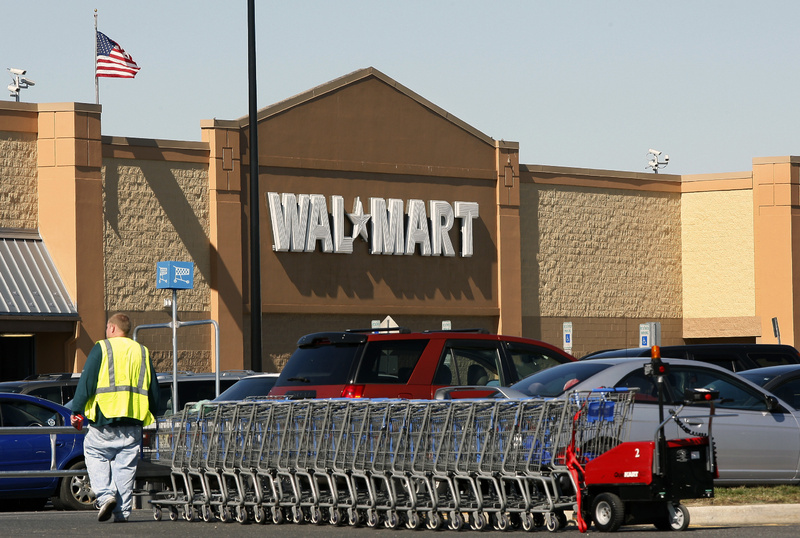WASHINGTON — The Supreme Court announced Monday it will hear two major appeals from corporate America that seek to block mass lawsuits: one involving a huge sex-bias claim against Walmart and the other a massive environmental suit that seeks to hold coal-fired power plants liable for causing global warming.
In both cases, the justices agreed to consider stopping these suits before they can move toward a trial.
Monday’s move is only the latest sign that the Supreme Court under Chief Justice John Roberts is inclined to rein in big-money lawsuits against business. The conservative justices have been particularly skeptical of sprawling suits that could run on for years and lead to enormous verdicts.
In the “global warming” case, industry lawyers played up this theme. They cited the mass litigation over asbestos and tobacco and said the climate-change suits, unless halted, could make those “look like peanuts.”
In the Walmart case, the justices will decide whether the retail giant can be sued for sex bias in the largest workplace class action in the nation’s history. A federal judge and the U.S. court of appeals in San Francisco cleared the suit to proceed as a class action on behalf of as many as 1.5 million women who were employed at Walmart in the past decade. The suit contends that women were regularly paid less than men and denied promotions.
The justices will not decide whether Walmart is guilty of sex bias. Instead, they’ll rule on whether a retailer must defend itself against a single lawsuit that speaks for more than a million employees.
Federal rules of civil procedures allow individual plaintiffs to sue as “representative” of a class of persons, but “only if there are questions of law or fact common to the class.”
The lawyers who sued Walmart said the company has a corporate culture that reserves most management jobs for men. Walmart disagrees and argues that because hiring and promotions decisions are made by individual managers in its 3,400 stores, the employees do not have a common complaint.
The issue of when a suit can proceed as a class action is of great interest to corporate lawyers and the trial bar. If a suit gets the go-ahead to proceed as a class action, companies feel pressure to offer a settlement rather than risk a potentially crippling jury verdict.
The “global warming” suit, if allowed to proceed, could be even more significant. It will decide whether judges can rule that pollution is a public nuisance and on that basis set limits on carbon emissions. The case to be heard by the court concerns power plants in the Midwest, but similar “nuisance” suits have been filed against the auto, oil, coal and chemical industries, asserting they should be held liable for contributing to climate change.
Environmentalists and lawyers for several states, including New York, California and Connecticut, have backed these suits. They are frustrated by the slow pace of progress in Washington and say the courts must act. David Doniger, a climate-change expert at the Natural Resources Defense Council, said the justices should “keep the courthouse door open until the executive branch actually protects the American people” by curbing carbon emissions.
But lawyers for the Obama administration joined industry’s side in urging the high court to stop the “global warming” suits. They say addressing climate change is a “political question,” not a legal one, and it should be resolved by Congress and the Environmental Protection Agency, not via courts and suits.
Copy the Story Link
Send questions/comments to the editors.



Success. Please wait for the page to reload. If the page does not reload within 5 seconds, please refresh the page.
Enter your email and password to access comments.
Hi, to comment on stories you must . This profile is in addition to your subscription and website login.
Already have a commenting profile? .
Invalid username/password.
Please check your email to confirm and complete your registration.
Only subscribers are eligible to post comments. Please subscribe or login first for digital access. Here’s why.
Use the form below to reset your password. When you've submitted your account email, we will send an email with a reset code.